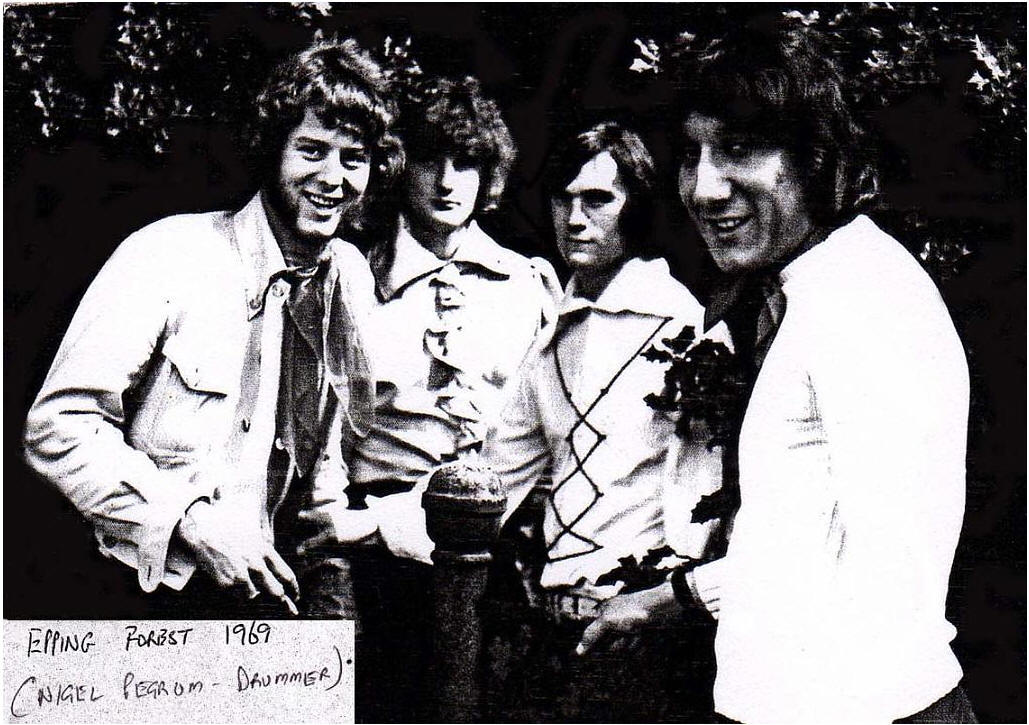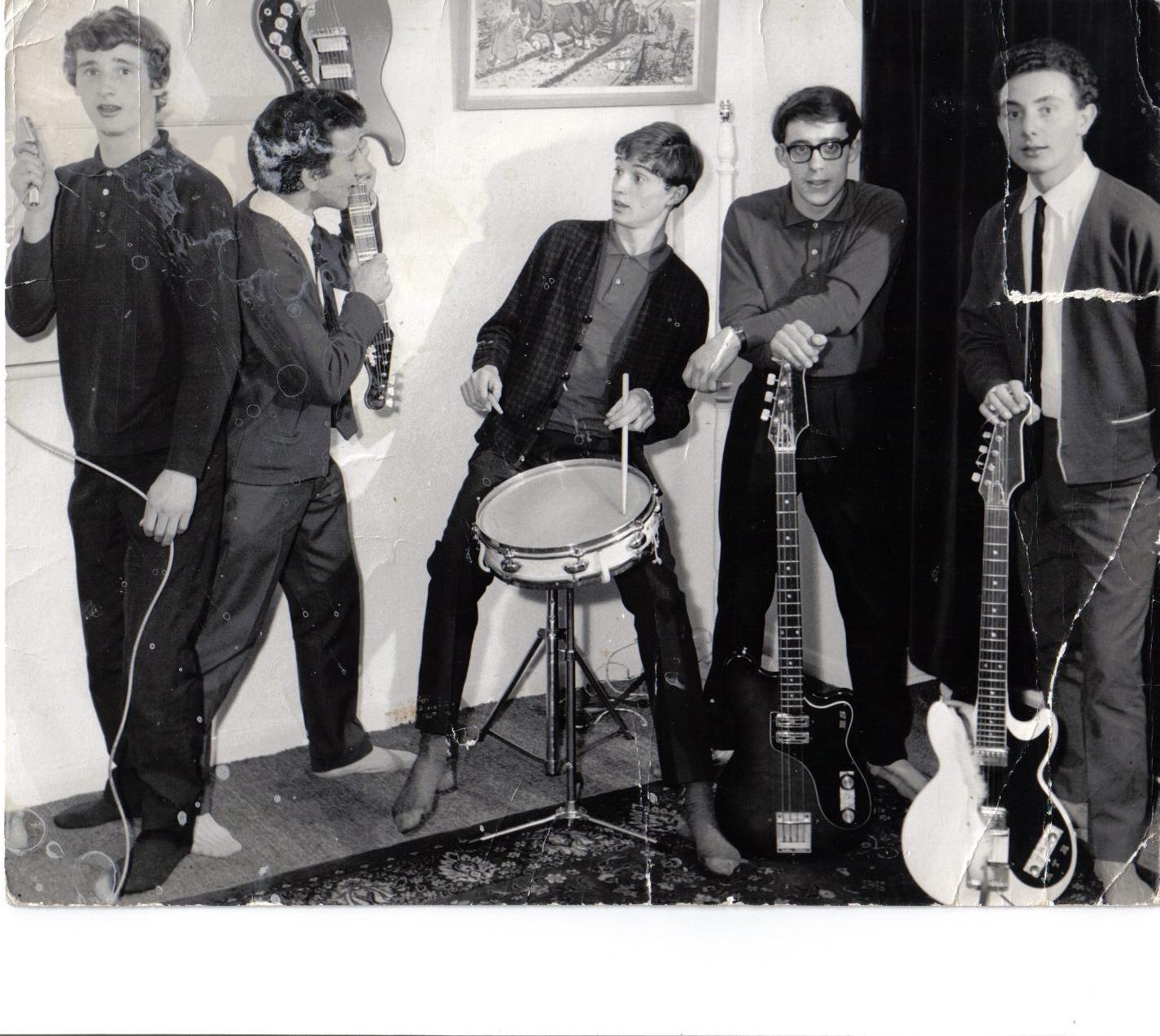URIAH HEEP STORY (original) (raw)

"Talk to Mick Box (and if you get the opportunity then do so, because he'll certainly talk back) and he'll reflect back on the history of Heep with a glint in his eye and a smile on his face (after selling millions of records he's entitled to), and like any seasoned traveller who's just returned from a momentous journey he'll, along with Lee Kerslake, Trevor Bolder and indeed, Ken Hensley, recall the highs and lows, ups and downs, with genuine affection. And you know what? They won't have regretted a single minute of it. They've had their share of 'appy days alright, but they're not over yet, that's for sure".
Kirk Blows, author of the Uriah Heep Story
The Stalkers 1967. Photo by Paul Booker & Richard Herd.
From l to r
Dave (Byron) Garrick, Mick Box, Rog Penlington, Richard Herd (with specs) and Alf Raynor
December 1969 - January 1970

Spice 1969. Paul Newton - David Byron - Nigel Pegrum - Mick Box
Many more pics and snippets from Paul Newton's archive here
Ken Hensley, Mick Box, Paul Newton, David Byron, Alex Napier.
URIAH HEEP thrive on drama! That was what one particular scribe said of Heep some time back when reflecting on the history of a band who've not just survived twenty years of rock and roll history but have been instrumental in writing part of that very history. Since the band's inception back in 1970, through the blizzardous, hazy but not so lazy Seventies, and on throughout the adventurous, globe-trotting Eighties Uriah Heep have played their part, climbing new mountains, scaling new peaks and exploring unknown territories, not just literally (though they've done that as well) but metaphorically, as every successive year has opened up another chapter of events that makes the group's biography more than just a story of a rock 'n' roll band; ultimately it's a tale of triumph and tragedy, success and failure, challenge and achievement (not to mention a few laughs) over the course of twenty years.
lt's been a long journey, that's for sure, but it's a road that's now taking Heep into a third decade. Thrive on drama? They literally breathe the stuff. The story of Heep commences back in the mists of time with the not unusual tale of a nucleus gradually being formed against a backdrop of musical experimentation, a trial and error approach to personnel and the cementing of relationships.
In Heep's case the seed was sown back in 1967, when most were still recovering from their post-World Cup victory celebrations and Jimi Hendrix was about to show the world exactly what the guitar was made for. Mick Box, a young lad of twenty who liked his soccer but loved his music more, clutched his guitar along with his ambitions and dreams, and formed a local Walthamstow band by the name of The Stalkers, a semi-pro outfit playing on the local circuit. When their singer left, drummer Roger Penlington suggested that his cousin David come down to the auditions.
"David had been coming down to our gigs," recalls Mick, "and he�d have a few pints and get up and sing a few old rockers with us (songs that would later form the basis of a rock 'n'roll medley that would become a staple of Heep's early Seventies set). David came down and was a bit reluctant so I said to him, 'You get up after a few pints, have a go now.' We knocked out a few songs and that was it, he was in!" The Box/Byron relationship flourished from that moment, and having slightly higher musical aspirations than their fellow members, decided to vault the psychological hurdle of giving up their day jobs and go professional, setting up a new band by the name of Spice (Byron changing his surname in the process from the original Garrick). Drummer Alex Napier was recruited via the time honoured tradition of a music paper ad, dodging the stipulated rule that there were to be no girlfriend/marital ties by claiming that his wife was his sister!
Bassist Paul Newton came in via The Gods and Spice was complete. Spice deliberately avoided playing the covers of the time ('Knock On Wood', 'The Midnight Hour' etc.), concentrating on more obscure material while slipping in the odd original. "We were always striving to do something original," remembers Box, "and though at first that made it difficult getting gigs, eventually we built a little cult following because of that." Spice gradually climbed their way up to Marquee level, under the guidance of Paul Newton's father, but by late '69 it was time to take a giant step upwards. The man to provide that step was Gerry Bron.
Gerry Bron was a management/production magnate, who upon being contacted went down to see the band at the Blues Loft in High Wycombe and was sufficiently impressed to sign the four piece to his Hit Record Productions Ltd (who had a deal with Philips Records), for the purposes of recording. "I thought they were a band I could develop and I took them on that basis," says Bron. It soon became apparent that Bron should take over their management too, and there began a relationship that would shape both partie�s futures far more than anyone could have then anticipated. And so the band found themselves booked into Lansdowne Studios in London, still under the name of Spice and still as a four piece, but with Bron's Hit Records/Philips deal securing the release of their product on new Phillips label, Vertigo.
The next couple of months witnessed several significant changes; firstly a change of name to Uriah Heep (suggested by Bron and based on the 'orrible little character from Charles Dickens' David Copperfield - Dicken's name being everywhere around Christmas '69 due to it being the hundredth anniversary of his death) and then the introduction of keyboards to the band.
"We'd actually recorded half the first album when we decided that keyboards would be good for our sound." recalls Box. "I was a big Vanilla Fudge fan, with their Hammond organ and searing guitar on top, and we had David's high vibrato vocals anyway so that's how we decided to shape it.
" Session player Colin Wood was brought in by Gerry but it was only when the search began for a permanent member that Ken Hensley, who had played keyboards with Paul Newton in The Gods and who was currently playing guitar in Toe Fat, was lined up. "I saw a lot of potential in the group to do something very different," remembers Hensley, and hence he joined. Hensley's talents lay not just in producing innovative keyboard and mellotron sounds, he could write as well, though his contribution to the first album, suitably titled ...
was restricted to re-recording some of Wood's keyboards and finishing the last couple of tracks. It was Box and Byron who were generating most of the material, the first fruits of which turned out to be a song by the name of 'Gypsy', reflecting Heep's sound to a tee, with its stomping, pounding guitar topped with the band's multi-tracked vocal harmonies. In many ways it was a marriage of contrasts that would, in time, become their trademark. "The funny thing was we wrote it at the Hamwell Community Centre, Shepherds Bush, and Deep Purple were rehearsing in the room next door to us. You can imagine the kind of racket we were both making between us!" recalled Mick in RAW magazine in 1989. ..............
